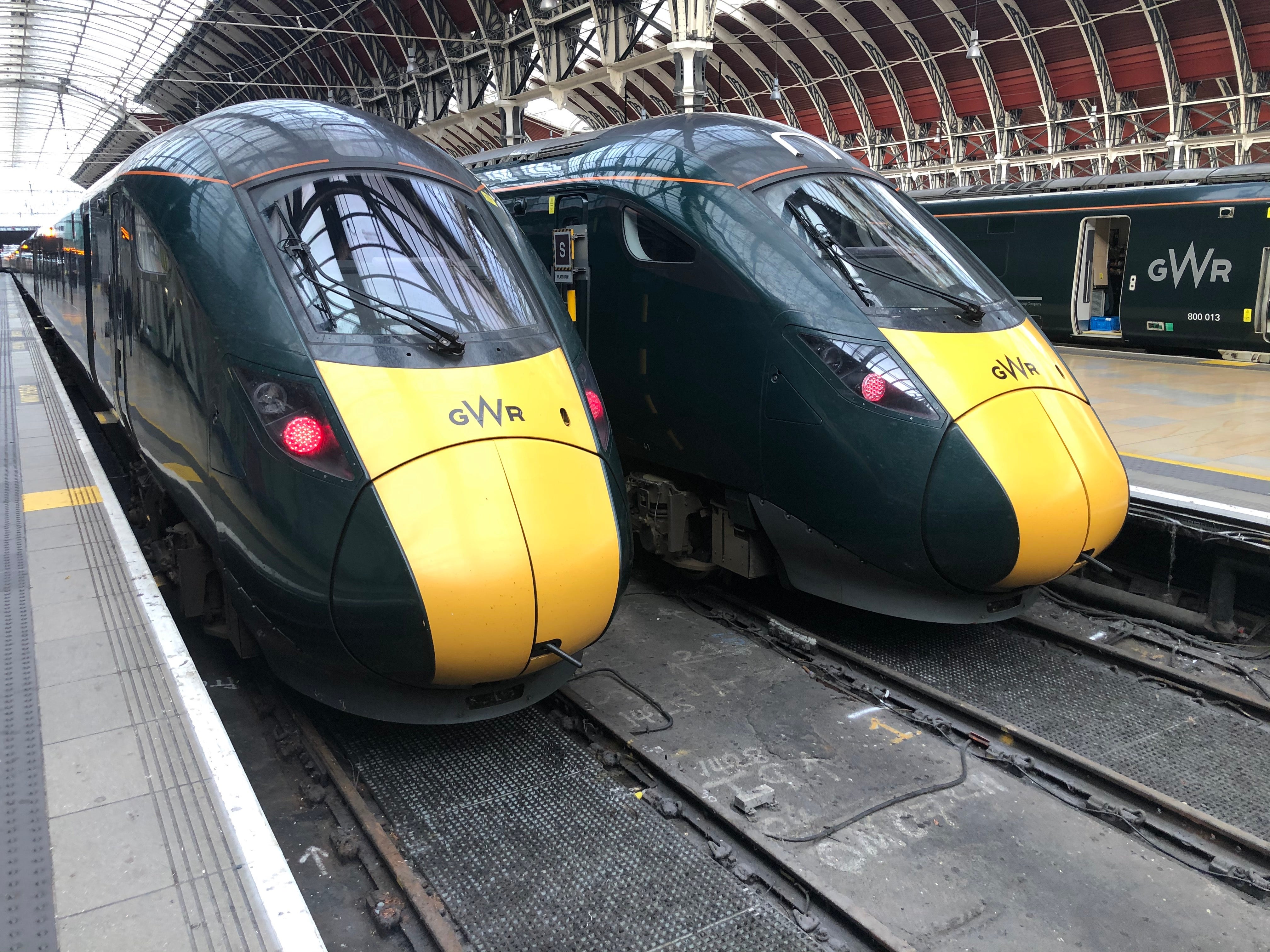Rail chaos continues on key inter-city lines as urgent safety checks are made
Minister warns of a possible ‘significant period of prolonged disruption’ on inter-city lines to and from London

Rail passengers travelling on some of Britain’s key long-distance routes face disruption all week as urgent safety checks are made on rolling stock.
The rail minister, Chris Heaton-Harris, warned passengers of “what could be a significant period of prolonged disruption”.
Hundreds of services were cancelled at the weekend, affecting hundreds of thousands of passengers, after hairline cracks were found on high-speed trains built and maintained by Hitachi.
The company says it is working “day and night” to solve the problem affecting rolling stock that normally runs at 125mph.
Trains linking London Paddington with South Wales and the West of England on the Great Western lines are worst affected, with GWR telling passengers booked on Monday not to attempt to travel on any of its long-distance routes to South Wales, Bristol and southwest England.
It warns: “There will be no service, or only an extremely limited service, with no alternative means of transport available.”
The train operator says passengers can claim a full refund or use their tickets on any alternative day up to Sunday 16 May.
One report says that only three out of the the 93 trains in the GWR fleet have been cleared for service. The National Rail website shows all long-distance trains to and from the London terminus have been cancelled.
Services from London to Didcot Parkway, regional services between Cardiff and Portsmouth via Bristol, and local services in Devon and Cornwall, are working – as is a shuttle between Plymouth and Penzance.
Transpennine Express and Hull Trains appear to be running full services after their fleets of the “Class 800” trains were cleared.
LNER, which runs trains between London King's Cross, Yorkshire, northeast England and Scotland, is running a reduced timetable all week, with key departures cancelled. No trains are running north of Edinburgh apart from a single trip each day to Stirling and back.
Passengers can use LNER tickets on ScotRail between Inverness or Aberdeen and Edinburgh; on Avanti West Coast between London Euston, Manchester and Scotland; East Midlands Railway between London St Pancras and Sheffield; and on connection services on Northern.
A spokesperson for the operator said: “Once trains have been checked, we are reintroducing them back into service as soon as possible.”
The Department for Transport (DfT) moved to distance itself from the chaos.
The rail minister said: “I have directed the rail industry to urgently set out a comprehensive plan to ensure services can safely resume as soon as possible.
“I expect operators to explore all options for replacement services to help people complete their journeys, and have asked Hitachi for a safety inspection plan, as well as a longer term repair strategy.”
On the BBC’s Today programme, the director of regions for the Rail Delivery Group – representing train operators – said he “could not put an exact time” on how long disruption would last.
Robert Nisbet said: “Replacement trains may need to be brought in.
“These cracks that have been spotted in more than one carriage are not dangerous in themselves. It’s what potentially they could become.
“It’s not something that an industry wants to do, to remove an entire class of train out of service on one day. But the Hitachi engineers who maintain, as well as put together, these trains deemed it to be so serious that they wanted to make sure they were taken out of service.
“For us as an industry, it’s disappointing and dispiriting to have this happen, because we were just starting to see passengers come back on to the network.”
The latest transport usage figures from the DfT show that while road traffic is back to pre-pandemic levels, the percentage of rail passengers compared with 2019 is in the low 40s. The mass cancellations will reduce that figure while they continue.
The Class 800 trains came into service with GWR in 2017, and on the East Coast main line in 2019.
Join our commenting forum
Join thought-provoking conversations, follow other Independent readers and see their replies
Comments
Bookmark popover
Removed from bookmarks